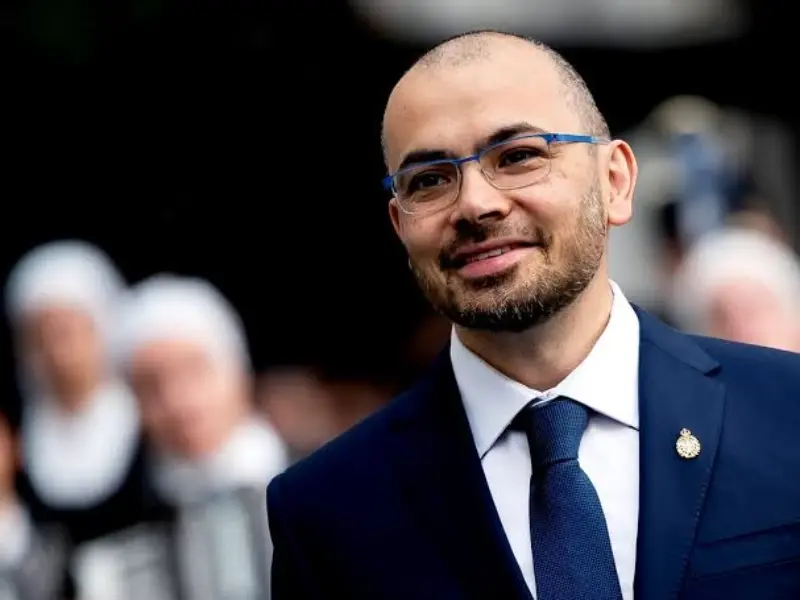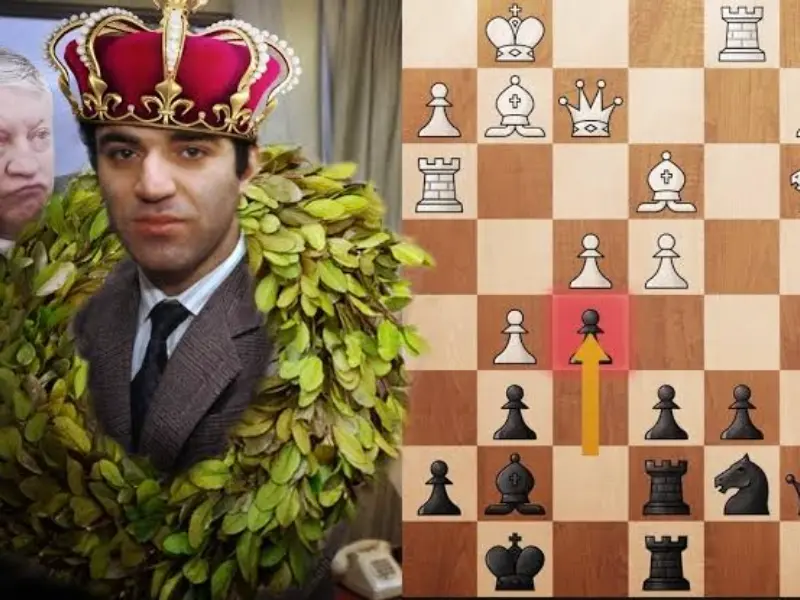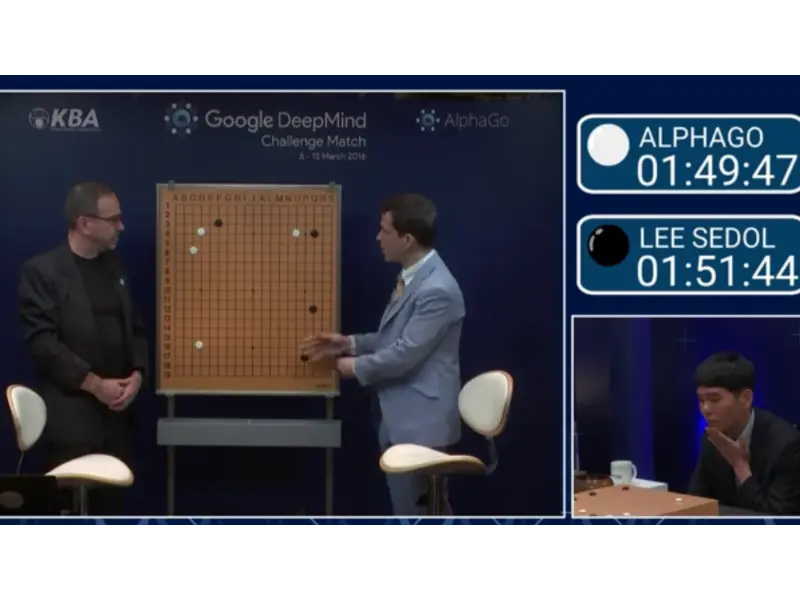- Demis Hassabis, British polymath, AI researcher and ex-chess prodigy, co-founded DeepMind, acquired by Google, and became a leading figure in AI innovation.
- He led DeepMind to AI breakthroughs, including AlphaGo defeating Go world champion, named in Time 100 list, awarded Royal Society honors.
- Advanced AI understanding, applied AI to healthcare, science, and gaming, earned global recognition for pioneering work in artificial intelligence.
Demis Hassabis, hailed for his near-legendary early achievements spanning chess, game design, computer science, and neuroscience, has crafted a mosaic of excellence, embodying the fusion of science and creativity.
Leading DeepMind, he spearheads groundbreaking AI research, unraveling the historic enigma of Go, with research findings gracing the covers of “Nature” twice in record time.
More significantly, DeepMind has pioneered a seamless integration of scientific inquiry and entrepreneurial endeavor, charting new pathways for synergistic collaboration. As DeepMind actively explores AI research and applications, it also strides at the forefront of AI ethics research globally.
Also read: Google DeepMind CEO Demis Hassabis receives knighthood for AI technology
Hassabis, akin to DeepMind’s AlphaGo, maintains an unwavering pace of work and learning akin to a superhero, viewing AI as both a lifelong pursuit and an integral part of his existence. Notably, he succeeded in persuading Stephen Hawking to temper his grandiose pronouncements on AI during an extended conversation.

For Hassabis, and his DeepMind cohort, the journey persists towards the ambitious goal of crafting a universal AI capable of solving all worldly problems, underscoring their relentless commitment to pushing the boundaries of AI innovation.
OUR TAKE:
Demis Hassabis is a true giant in AI, combining the strategic vision of a chess grandmaster with the computational magic of a technology pioneer. If AI is a maze, Hassabis is its Daedalus, weaving complex neural networks like threads of possibility.
His brainchild DeepMind is the embodiment of the promise of artificial intelligence – a cognitive Prometheus that steals fire from the god of data. What sets Hassabis apart is not just his intelligence, but his humility – an AI enthusiast without a trace of Silicon Valley hubris. He’s a guy who can beat you at chess and then teach a computer to do the same, all over tea in London.
–Fei Wang, BTW Reporter
Timeline of Demis Hassabis
- 1976: Born on July 27 in London, England.
- 1985: At the age of 9, he became the second-highest-rated chess player in the world for his age group.
- 1992: At 16, he started working in video games, becoming the lead programmer of the game “Theme Park” at Bullfrog Productions.
- 1995: Co-founded Elixir Studios, a video game development company, at the age of 18.
- 2000: Graduated from the University of Cambridge with a Double First in Computer Science.
- 2004: Completed his Ph.D. in cognitive neuroscience at University College London (UCL).
- 2005: Co-founded DeepMind Technologies, a British artificial intelligence company, with Shane Legg and Mustafa Suleyman.
- 2014: DeepMind was acquired by Google for a reported £400 million.
- 2016: AlphaGo, defeated world champion Lee Sedol in a chess match.
- 2017: Awarded the Royal Society’s Mullard Award for his contributions to computer science.
- 2018: Named a Fellow of the Royal Society.
- 2019: Awarded the BBVA Foundation Frontiers of Knowledge Award in Information and Communication Technologies.
- 2020: Featured in the Time 100 list of the most influential people in the world.
- 2021: Appointed as a Commander of the Order of the British Empire (CBE) in the 2021 New Year Honours for services to science and technology.
The timeline highlights Hassabis’ journey from a chess prodigy and video game designer to a leading figure in artificial intelligence research and entrepreneurship.

POP QUIZ
What was significant in the life of Demis Hassabis in 2014?
A. Became a co-founder of the company Elixir Studios
B. Received a double Bachelor’s degree in Computer Science from Cambridge University
C. Google buys DeepMind for about $650 million
D. Received the BBVA Foundation Frontier Award for Information and Communication Technology Knowledge
The correct answer is at the bottom of the article.
Genius becomes AI expert
Demis Hassabis, born in London to a Singaporean Chinese mother and a father of Greek-Cypriot descent, emerges as a polymath, excelling in chess, computer programming, video game design, and neuroscience.
His diverse expertise culminated in the founding of DeepMind in 2010, alongside collaborators like Mustafa Suleyman and Shane Legg, both intimately acquainted with Hassabis from his past. Google’s acquisition of DeepMind for About $650 million in 2014 underscored its significance.
Renowned computer scientist and entrepreneur Hermann Hauser lauds Hassabis for his rare combination of talents, describing him as open-minded, generous, and humble, devoid of arrogance.
Hassabis’s foray into AI began during his undergraduate studies in computer science at Cambridge University. Disenchanted with conventional “narrow” AI courses, he aspired to develop a “general-purpose” AI capable of processing unstructured data for independent decision-making.
At DeepMind, engineers employ neural networks, mirroring the human brain, enabling the system to learn from mistakes and undertake various tasks, showcasing its general intelligence akin to human cognition.
Games serve as an apt testing ground for AI programs, allowing researchers to gauge system performance. Hassabis’s own chess prowess, evident from his grandmaster title at age 13 and victories in the Mind Sports Olympiad, underscores his dedication to mastering AI’s potential.
Also read: General AI apocalypse? Relax, it’s more hype than reality
Breakthrough technology to beat human players
Games are an ideal way to test such AI programs, allowing researchers to measure performance against set goals. Demis Hassabis was the ideal person to train computers. He has won poker tournaments and says he loves the game because players can make all the right moves and still lose. “I know how to play Go enough to appreciate its beauty,” Mr. Hassabis said. “But it’s not one of the games I’m good at, so I didn’t actually play AlphaGo myself because it was beyond my abilities almost from the beginning.”
Also read: Neuralink livestream shows patient playing chess with mind control
Computers have long “solved” other games such as backgammon and checkers. In 1997, IBM’s Deep Blue supercomputer defeated then world chess champion Garry Kasparov.

With Deep Blue, programmers built a system that tried to analyse every outcome of every possible move. But Go is much more complicated than chess. There are more possible permutations on a Go board than there are atoms in the universe. Even the most powerful supercomputers can’t process that much information. Defeating the best human players will require technological breakthroughs like never before.
I thought AlphaGo was based on probability calculation and that it was merely a machine. But when I saw this move, I changed my mind. Surely, AlphaGo is creative.
Lee Sedol, winner of 18 WORLD GO TITLES
Lee Sedol is the world champion of Go. The ancient Chinese game of Go has long been considered the most complex. The AlphaGo program beat Lee Sedol, winning the first three of five rounds.

“One of the curious things about the amazing progress we’ve made in artificial intelligence is that it looks like we have a Go world champion, but we don’t have a computer that can physically move Go pieces.”
Demis Hassabis, founder of DeepMind, game developer, neuroscientist and AI entrepreneur
For Demis Hassabis, creating machines that beat humans in games is just a proving ground before unleashing DeepMind’s technology to tackle “real-world challenges,” such as making smartphone assistants smarter and using it to help scientists solve some of society’s most pressing problems in the future. Health care and other areas.”
The research is still evolving
Demis Hassabis once remarked that chess epitomises the art of decision-making under the relentless pressure of an adversary. This sentiment underscores his approach to leadership and innovation. Whether orchestrating organisational strategies, designing products, or delving into research, Hassabis advocates for meticulous planning far into the future. For him, envisioning the perfect end state serves as the cornerstone, from which he meticulously crafts the sequential steps required to realise each goal. This philosophy not only shapes his individual endeavours but also resonates profoundly within the realms of leadership and pioneering research.
Google’s AI technology is not only applied to consumer-facing products, but also to underlying systems that people are hardly aware of. Demis Hassabis said: “For example, we initially applied the AI system to the cooling system in the Google data center, reducing energy consumption by nearly 30%, which is a huge benefit. In fact, there are many underlying technologies that apply AI to continuously improve the efficiency of systems. The current product is not the end state and is still in a transitional phase. Systems such as chatbots will eventually evolve into all-powerful personal assistants, and current chatbots are a long way from achieving this, complementing elements such as planning, reasoning, and memory. The technological innovations that will emerge in the future are far more exciting than today’s chatbots.”
Demis Hassabis said: “Real research is never a straight line, and it is impossible to know the answer before starting research, research is always accompanied by uncertainty, and we cannot accurately predict the timeline for achieving AGI.”
But let’s be honest, we’re all keeping an eye on this new concept coming our way.
The correct answer is C.
In 2014, DeepMind was reportedly acquired by Google for $650 million, and Facebook also courted him.
